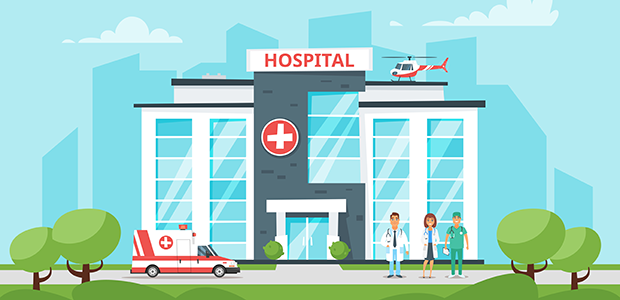
1/3 of NHS & healthcare workers are unable to perform due to overwhelming tech
Healthcare systems risk data breaches due to overinvestment in new technology, which is increasing stress and email mistakes, says a study of healthcare workers by Zivver, a leader in secure communication solutions.
The study is one of the largest independent pieces of research into secure digital communications and workplace productivity in the UK healthcare sector, surveying employees and IT leaders to investigate the state of digital security for healthcare organisations today.
Zivver found that professionals are feeling swamped by the growing number of digital communications in their healthcare organisation and, for the NHS, across wider integrated care systems (ICS). While investing in a large number of new channels may be perceived as progressive, the myriad of new technologies is disrupting workflows and productivity for healthcare workers. In the last two years, 51% of healthcare workers report that their communications channels have increased, with 31% saying new communications have impacted their ability to focus and do their best work.
Healthcare workers can feel overwhelmed by choice, unsure of the best method. As a result, they feel stressed and are more likely to make email errors, which could result in a data breach. The research found that in the last two years, 30% of healthcare workers have sent the wrong attachment in error, 27% have hit reply all by mistake, and 20% have sent sensitive information via email that they probably shouldn’t have.
Liam Cahill, an advisor to national bodies and frontline providers in healthcare, said: “IT leaders face a real quandary in trying to capitalise on the opportunities that digital technologies bring, but also in limiting the disruption and stress that accompanies huge changes to how staff work when patient demand and staffing levels are so critical. With communications representing such a huge part of care, whilst everyone needs to play a role in protecting the security of patient data, we need to make sure that smarter technology is bearing the load, rather than passing greater expectations on to already busy staff to avoid human errors and data breaches.
Cahill continued, “Healthcare staff have traditionally had difficult experiences with cumbersome technology, and at this time, if we can not just make it easier for them to confidently and securely communicate with patients using such a familiar tool as e-mail, in a more secure and accessible way, then this represents a great win for all involved.”
Adam Low, Chief Technology Officer at Zivver, added: “Our research found 99% of healthcare professionals want to be free to focus on their core role, but the increasing number of digital platforms they use is compounding their stress, distracting from core tasks, and leading to data protection mistakes. What we also found troubling is the lack of understanding of personal responsibility for computer security: just one in five respondents said they worry about data security. As email remains the most productive and efficient means of communication across healthcare, we must be working toward an effortless fix to ensure security and compliance for the transfer of sensitive information. Smarter, simpler technology with a layer of security will be the most effective way to overcome security barriers and support healthcare workers in delivering the best patient care.”
According to the report, email was championed as the preferred form of communication, with 88% of employees relying on email to get their job done. Being progressive means moving towards a stronger and better solution for all. 83% of IT leaders agree that employee email security errors can be reduced with smarter data security, making this a clear focus to improve patient care for IT leaders.
The full Zivver report, 'Improving patient care: Why email is the answer to more secure digital communications', can be downloaded here.

